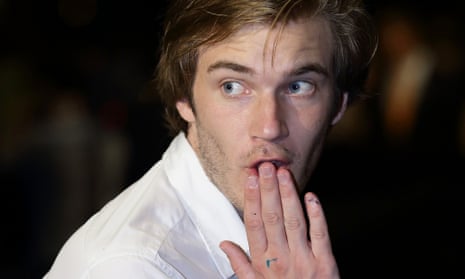Nintendo’s launch of a “Creators Program” to share YouTube advertising revenues from videos featuring its games has been criticised by the platform’s biggest star, PewDiePie.
The scheme requires YouTube creators to register with Nintendo, agree to it collecting the ad revenues from their entire channels or from specific videos, and include a disclosure message within each video.
In return, they’ll be paid 60% of the advertising revenues, or 70% if they have registered their entire channel under the program. It replaces Nintendo’s previous policy, which was to keep 100% of the ad revenues from any video featuring one of its games.
PewDiePie – aka Felix Kjellberg – isn’t impressed. In a post on his Tumblr blog, he claimed that Nintendo’s new policy is still misguided:
“First off all, they have every right to do this and any other developer / publisher have as well. There’d be no ‘let’s play’ without the game to play. And we (YouTubers) are humble to this fact.
But what they are missing out on completely is the free exposure and publicity that they get from YouTube / YouTubers. What better way to sell / market a game, than from watching someone else (that you like) playing it and enjoying themselves?”
He went on to describe the Creators Program as “a slap in the face” to the community of YouTube channel that focus entirely on Nintendo games, and suggested that in other cases, the gamer is more important than the game when it comes to YouTube popularity.
“If I played a Nintendo game on my channel. Most likely most of the views / ad revenue would come from the fact that my viewers are subscribed to me,” he wrote. “Not necessarily because they want to watch a Nintendo game in particular.”
Kjellberg makes a comparison between Nintendo and another games firm – Minecraft developer Mojang – in his blog post, claiming that Mojang’s hands-off policy on YouTube has been one of the main factors behind Minecraft’s success.
Mojang’s chief operating officer Vu Bui explained that policy in an interview with the Guardian in October 2014, praising the community of Minecraft YouTubers that includes some of YouTube’s most popular channels overall:
“That doesn’t take anything away from us, and I would say it actually adds value to Minecraft, to have people who are extremely talented and creative doing things. We’ve essentially outsourced YouTube videos to a community of millions of people, and what they come up with is more creative than anything we could make ourselves.”
“There’s no damage to us from YouTube. We might have some people who make content we might not agree with, but this is how the democratisation of media works. You put it out there and let the community decide. If someone’s putting out rubbish, the community is not going to watch it, and it won’t rise to the top.”
PewDiePie’s criticism of Nintendo carries weight: with nearly 4.1bn views of his videos in 2014, and more than 33m subscribers, he owns the most popular YouTube channel in any category, not just games.
That said, Nintendo’s move from claiming all the revenues for YouTube videos featuring its games to sharing up to 70% with their creators is clearly an improvement.
Some elements remain unclear: for example, whether Nintendo is setting boundaries for the content of videos: for example, those that criticise its games negatively, or any using its characters for satirical purposes.
Top 100 YouTube gamers were watched 4.4bn times in September
YouTube: PewDiePie, DC Toys Collector and Katy Perry top in 2014

Comments (…)
Sign in or create your Guardian account to join the discussion